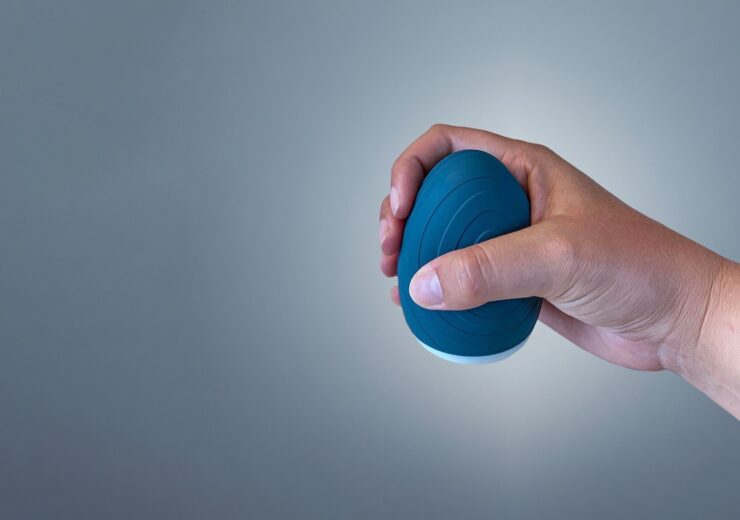Izar is a hyper-sensitive controller designed to detect sub-newton level patient finger and hand forces, which enables treatment in the most impaired patient populations, and also comes with engaging gaming content for self-training

Izar hand therapy solution device. (Credit: Business Wire/ MindMaze Group SA)
AI-driven digital neurotherapeutics company MindMaze has rolled out Izar, its FDA-listed and CE-marked smart peripheral for patients with impairment in hand motor function.
Izar is a hyper-sensitive controller designed to train and assess both dexterity and strength, by capturing fine grasp forces and wrist movements to carry out activities of daily living.
The device can detect sub-newton level patient finger and hand forces, which enables treatment in the most impaired patient populations.
The simple and portable controller also comes with engaging gaming content that enables patients to self-train, either in-clinic or at home, which enhances and expands their training.
MindMaze said that Izar is designed to bridge the gap in current neurological care, and is the most effective hand dexterity and strength treatment in a variety of neurological conditions.
It is a part of the company’s comprehensive omni-site approach to the treatment and maintenance of neurological diseases, which include Stroke, Parkinson’s disease, Alzheimer’s disease, and Traumatic Brain Injury (TBI), among others.
MindMaze chief medical director and professor John Krakauer said: “It is very exciting to have a device for the hand that has the versatility of Izar. It can serve as a controller during reach-to-grasp movements, as a trainer of grip force gradation, and as an assessor of dexterity.
“The device is also highly portable, so it can be used across the continuum of care, which is important as the upper limb, and the hand in particular, gets relatively neglected in neurorehabilitation.”
According to MindMaze, Izar allows clinics to address the unmet or underserved need for hand recovery through new in-clinic or remotely supervised self-training programs at home.
Shirley Ryan Ability Lab in the US, University College London in the UK and The University of Aukland in New Zealand are already using Izar in their clinical research.
The company completed rigorous pre-launch testing of the device across nine sites and delivered over 250 hours of active supervised and self-training therapy time in 250 patients.
Currently, Izar is being offered in the US as well as Europe, including France, Switzerland, and Germany for the training of dexterous grasp, pinch and grip.
Furthermore, the company intends to provide training content for wrist, bilateral movements, and combination movements of the upper limb and hand, along with dexterity assessments for hand and wrist, in the future.
